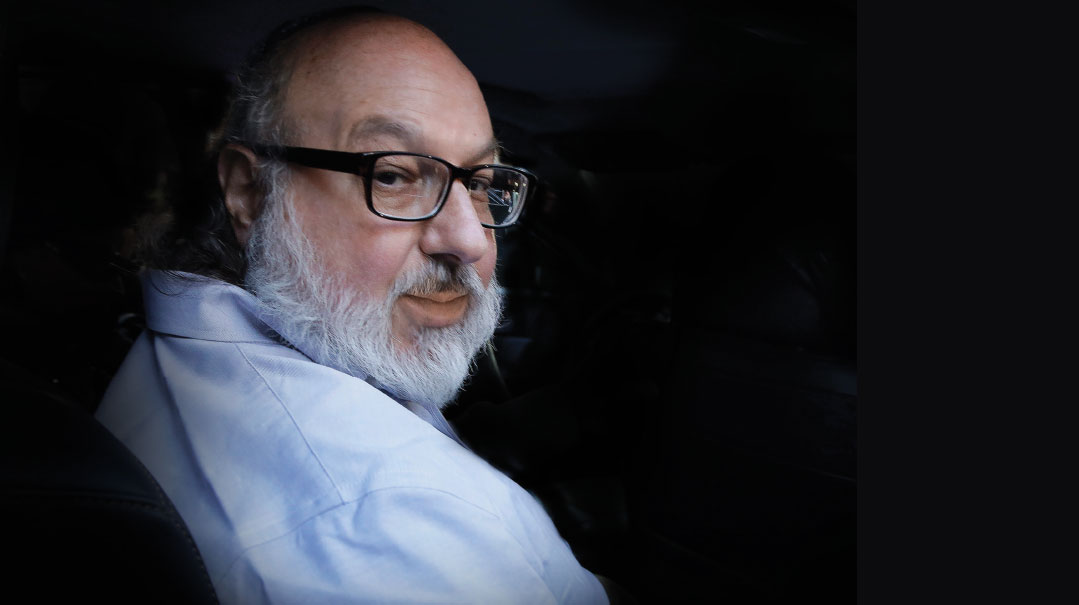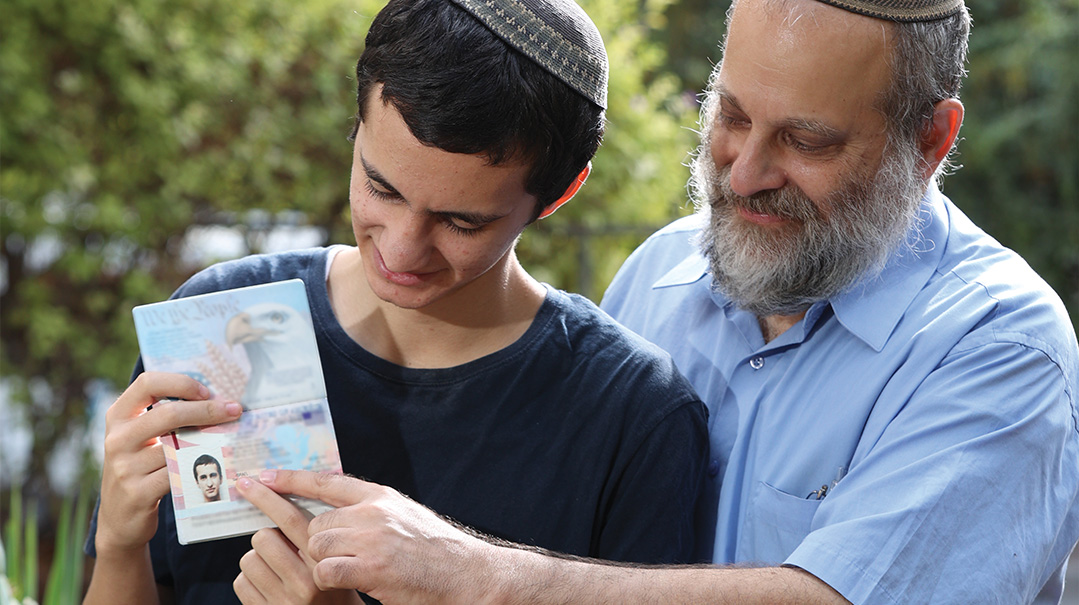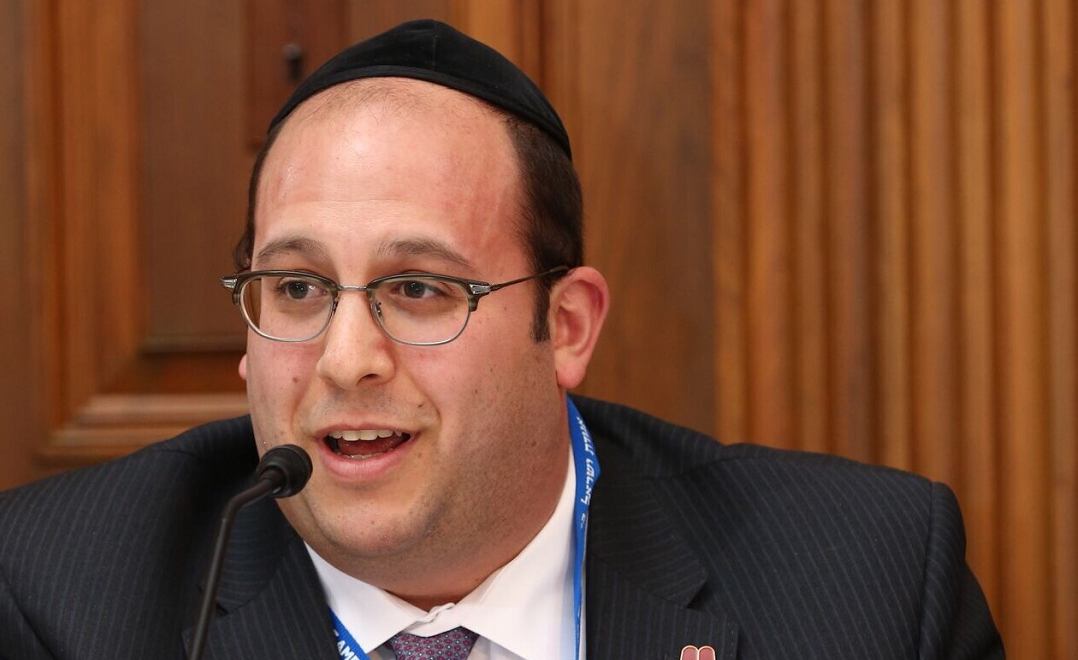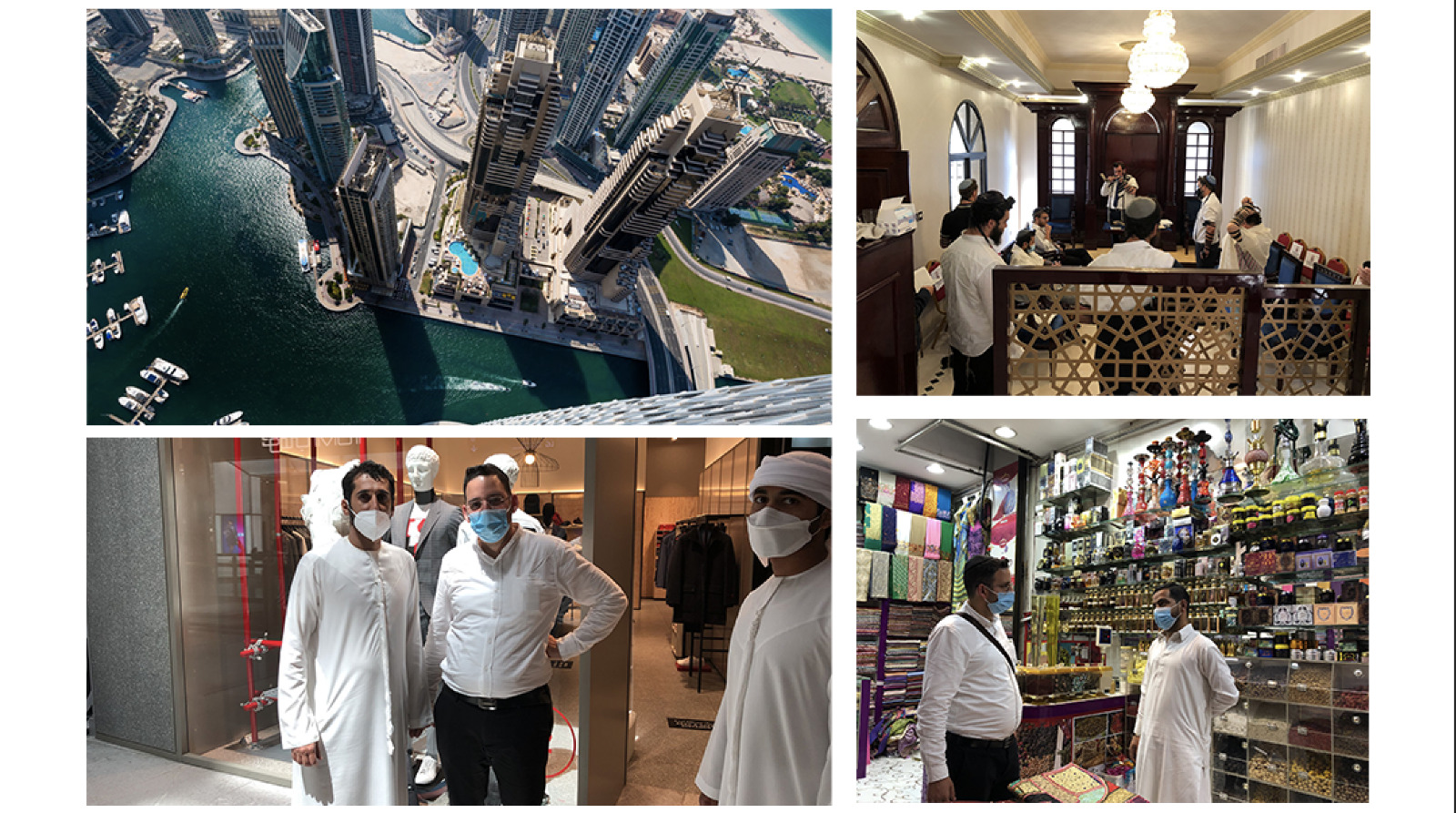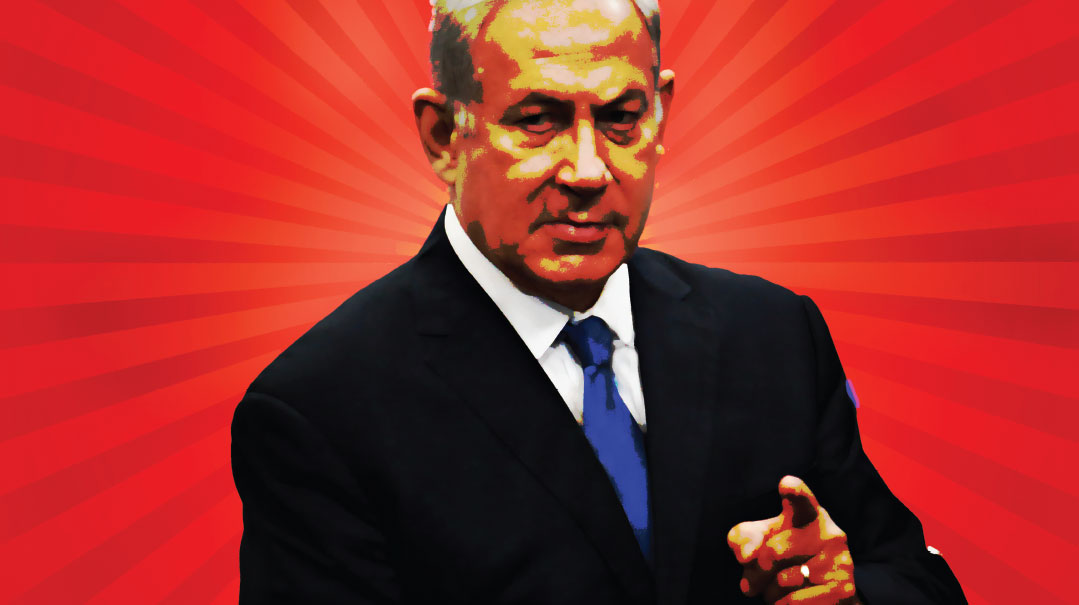Black and Blue

Is Israel's police force scapegoating chareidim?
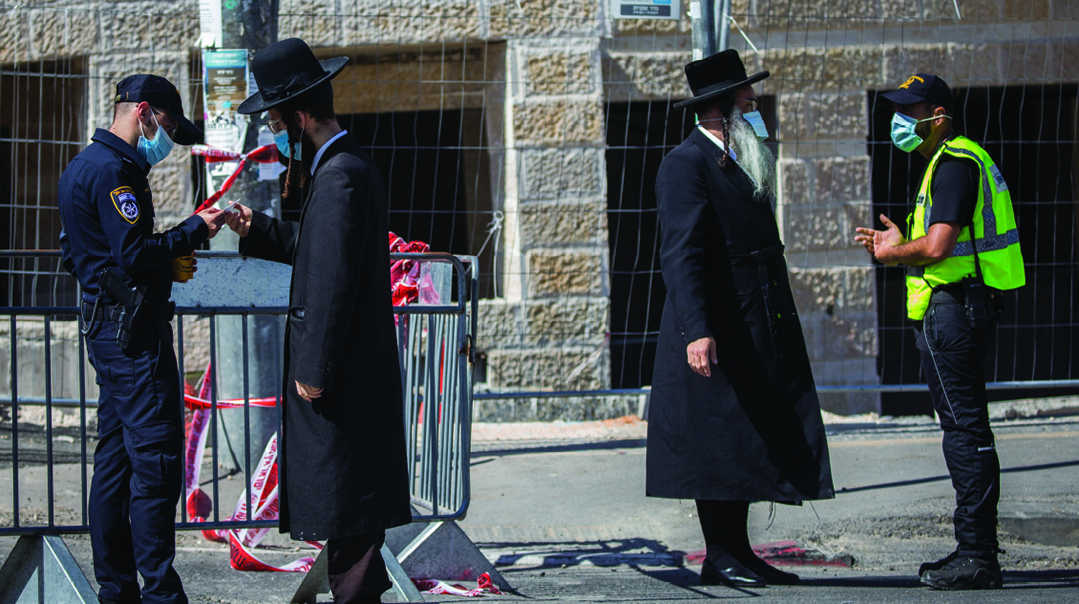
How quickly things change.
Mere months after Israel flattened the first coronavirus wave to world acclaim, with an early lockdown that featured heartwarming interactions between Bnei Brak residents and paratroopers, the country has become a COVID-19 basket case and chareidi-secular relations are on the rocks.
When the story of that deterioration is told, two moments are likely to stand out. One is the viral video that emerged last week of a 13-year old chareidi girl walking along Jerusalem’s Sarei Yisrael Street, looking after two little siblings, and being stopped by police for not wearing a mask.
“If you don’t tell us who you are,” they tell the crying girl, “we’ll have to take you to the police station.”
The incident that police later admitted was “foolish” generated widespread sympathy across Israel for perceived heavy-handedness in the enforcement of regulations. But on the chareidi street, it was a totemic moment that — rightly or wrongly — crystallized a sense that chareidim were being singled out for special treatment in the pandemic.
The second moment came a few days later. As anger spilled over at the lockdown of 7,500 families in the capital’s chareidi Romema neighborhood because of a surge in coronavirus cases, despite other infected areas being spared the restrictions, ugly protests broke out and there was a “split-screen” contrast.
A Motzaei Shabbos demonstration against the government’s economic policies in Tel Aviv’s Kikar Rabin was allowed to swell illegally to 10,000 people, despite being what the deputy health minister termed a “health terror attack.” But it was in Jerusalem that police came down heavily on protestors. Former transport minister MK Bezalel Smotrich highlighted the far more tolerant attitude of Tel Aviv police who tweeted of wanting to “allow freedom of demonstration” versus the uncompromising rhetoric of Jerusalem police.
Against the backdrop of a second night of demonstrations in Romema yielding unacceptable scenes of disorder, with young chareidim throwing eggs and taunting police, Jerusalem’s Deputy Mayor Yossi Deitsch spoke of the pent-up anger that had found expression.
“I’m seeing people I never thought I’d see at a demonstration,” he said. “In neighborhoods like Ramot and Har Choma there are the same number of infections, but they feel free to hit us with lockdown because chareidim are an easy target. We’ve become the scapegoat for the government’s failures.”
While police and politicians reject the charges of discrimination against the chareidi public, there are many critics who see the lockdowns as overkill.
“There’s a question whether they’re an effective measure. I think we have the tools to be able to fight this in a precise and pinpointed way,” Gen. (res.) Roni Numa, former head of the IDF’s Central Command and director of Bnei Brak’s COVID-19 response told Mishpacha.
But as Israeli labs continue the frantic search for a cure, perceptions matter; and after a long, slow deterioration, chareidi-police relations need urgent care.
Genuine Outrage
When Yehoshua Getter’s young daughter was stopped by police last week for not wearing a mask (see sidebar), the resulting uproar was no fake WhatsApp outrage, but a genuine and widespread sense that Israeli police had overreached themselves. Support poured in from across the political and media spectrum.
“Now police are going to find the 13-year-old who’s not wearing a mask,” tweeted leading Israeli journalist Kalman Libeskind of the thousands of tightly packed and undisturbed protestors in Tel Aviv days later.
Like the proverbial spark in a hayloft, the incident lit a mountain of tinder-dry outrage that had been building for months. When coronavirus hit Israel in late February, chareidim came in for a vicious media flaying.
“If Israel becomes like Italy, the chareidim will be to blame,” a news anchor quoted an unnamed official as saying. Notoriously, prominent TV personality Rina Matzliach kept her job after accusing the entire chareidi public, numbering one million people, of mass tax evasion.
So when the second coronavirus wave came — after social-distancing rules were broadly kept in chareidi neighborhoods, but openly flouted in much of the country — a sense of outrage grew when police started enforcing rules in chareidi neighborhoods.
And then came the young girl’s mask incident.
“Instead of giving the 13-year-old a mask, as they’d done to many other people, these policemen were foolish,” says Yossi Deitsch. “I’m not saying all police are like this, but in an age when people are walking around with phone cameras and videos go out instantly, when a policeman punches a protestor in the face for telling him to wear a mask, as happened last night in Romema, and people know that at the very same time the Tel Aviv protests are allowed to continue, a few bad apples can give the entire police a bad name.”
The outrage on the chareidi street is palpable, as is a sense of grievance. “Chareidi Lives Matter” signs carried at the Romema demonstrations were a nod to the recent events in the US, likely tongue-in-cheek, but also reflecting a chareidi perception of a society under siege. Those feelings were also expressed in a deluge of talkbacks on chareidi news sites. While some blamed religious people who refuse to wear masks for causing the surge in COVID-19 cases, many see a bias in the police’s differing approaches to Jerusalem and Tel Aviv.
That’s a claim that police spokesman Shabtai Grabarchik rejects. Aware of the deep frustration over media treatment of the issue, he says that the statistics show the true picture.
“Over the last two weeks, around 27,000 fines have been given for not wearing a mask across Israel,” he says. “Of that, chareidi cities like Bnei Brak and Elad received about 0.05% of the total — far below chareidi population representation.”
The perception of police bias, he says, emanates from the fact that there are more police patrols in chareidi areas, given the higher infection rate, which is due to denser living conditions. “The treatment of this 13-year-old girl was a mistake in judgment, but of the hundreds of thousands of encounters between police and citizens, this is batel b’shishim. And it’s also wrong to make this girl a test case for chareidi frustration.”
Pressed on the difference between the protests in Romema and Tel Aviv, Grabarchik is adamant. “The organizers of the Tel Aviv protests got a permit for 1,800 people to demonstrate,” he says. “When 10,000 showed up, we had a choice whether to break it up by force, causing a nationwide incident, or let it finish peacefully, which is what we did. In Romema, the protestors attempted to illegally breach the lockdown barriers.”
But Degel HaTorah MK Yaakov Asher, head of the Knesset’s Constitution and Law Committee, told Mishpacha that “the negative feelings in the chareidi community have reached levels I don’t recall.
“It doesn’t make a difference whether intentionally or not, a great injustice has been done to chareidi society. Because of an objective problem with the high infection rate in large families, a negative image of the chareidi world has been created by shutting off entire neighborhoods, without working first to prevent the rise in infection.”
But even as chareidi politicians lined up to condemn the shutdown and police aggression, Interior Minister and Shas leader Aryeh Deri pushed back on at least some of the criticism leveled at the government, where chareidi representatives hold the balance of power.
“Let me remind you that the lockdowns are not a uniquely chareidi thing,” he told Radio Kol Chai. “They began in Arab towns and afterward in secular neighborhoods of Lod, Ramleh, and Kiryat Malachi.”
Corona General
Being a general may not be the automatic springboard to political power in Israel it once was, but ex-IDF brass are still in demand as problem solvers, as Bnei Brak shows.
When the “city of Torah and chassidus” was hit hard by the first wave of COVID-19 in March, Mayor Rabbi Avraham Rubinstein realized that he was in over his head and called in the former head of the army’s Central Command, Gen. (res.) Roni Numa. With much experience in running complex civilian operations in the West Bank, but no prior interaction with the chareidi world, it was a steep learning curve for Numa. He emerged as an unlikely hero in the city — and a critic of lockdowns.
“There is no one in the country who has more experience with lockdowns than I have, while in the army,” he says. “In this case, a lockdown will not be effective, because it’s a tool that is meant to slow the spread of the epidemic and cut off the chains of infection. But if they close Bnei Brak down without removing the infected people, the spread will continue, because the sick people are in the city. That’s one of the things that is not happening efficiently enough — taking the sick people out of the population.
“So we need to check where the hotspots of infection are,” continues Numa. “Are we going to close in 210,000 people?!”
The call for pinpoint measures, and not carpet-bombing virus-stricken areas, is one that resonates beyond Bnei Brak as well.
Former defense minister Naftali Bennett has emerged as a vocal critic of the government’s coronavirus strategy, calling the shutdown approach a “sledgehammer” policy that should be replaced by a targeted “tweezers” approach of mass testing and evacuation of sick people to corona hotels.
“There are 130 ill families in Romema, for which they’ve locked in 7,500 families,” says Deitsch. “They are concentrated in a few small areas — because I live next door I need to suffer? The government just wants to be seen as acting, but what they should be doing is bringing sick people to the corona maloniyot.”
Reality, though, is more complex. Having failed to build a mass test-and-trace system, the Netanyahu government has been left scrambling as daily infections top a thousand and Israelis are banned from entering Europe. But given the fact that many people don’t want to leave to corona hotels, and are not getting tested for fear of disrupting family life, the blunt and draconian instrument of a shutdowns may be unavoidable.
Suffering under Lockdown
In the meantime, thousands of families across the country are enduring their second lockdown in a few months — made all the more maddening because just across the street, life goes on as normal.
“My name’s Rivkah,” texts one Romema resident. “Last night the education authorities decided to close the kindergartens here, so while some continue illegally, our kids are out of schools again.”
But more than having children cooped up in small apartments, there are stories like the father of a newborn baby in the ICU, who lives just inside the lockdown area.
“When I came back on Motzaei Shabbos from the hospital, I went over to a policeman, showed him my bracelet, and told him I’m coming back from the hospital and that I live here,” the man texted. “He refused me entry. After a minute of trying to convince him to let me in. I saw that I wasn’t getting anywhere, so I simply walked over to a different policewoman and told the same story and she immediately let me through.
“At that point, the original officer came running over with another policeman, viciously dragged me back, and slammed me into the wall. I tried telling him that the policewoman let me through, but that just enraged him more as he continued to mercilessly manhandle me. I have the bruises to show for it.”
As the Israeli summer heats up, and temperatures rise over the country’s resurgent pandemic and botched response, it’s not only innocent passersby who have been affected.
Never that healthy, the delicate tissue of the relationship between government authority and some parts of the chareidi community is looking severely battered.
“We Need Achdus, But This Shouldn’t Happen”
“My daughter, who’s 13-and-a-half, went to pick up my other children from gan, and on the way back they went through Geula,” says London-born businessman Yehoshua Getter. “She bought them a slush and moved her mask to drink. Then these two policemen saw her, jumped out of the car and started to yell. ‘You only put your mask on because you saw us,’ they shouted.”
As passersby got involved and started defending the crying girl, her little sister holding the stroller and a baby inside, the officers realized they’d overreacted. Instead of waiting for their mother to arrive, they drove away.
“We need achdus here in Eretz Yisrael, for religious and secular to understand each other,” says Getter. “I’m not here to make that gap wider, or accuse the police of always being wrong. But in this case, there was no excuse, no sensitivity — it was just harassing a child.”
Shortly before press time, and six days after the event, news broke that police officials sat down with the Getters to apologize. The family has achieved closure and hopes to move on.
One positive upshot of the incident has been the outpouring of support from religious and secular alike. “A secular lady from Rishon L’Tzion called to say how shocked she was. A man from California whom I didn’t know wanted to send something for my daughter, because the story touched him. The good side of Klal Yisrael came out.”
(Originally featured in Mishpacha, Issue 819)
Oops! We could not locate your form.







